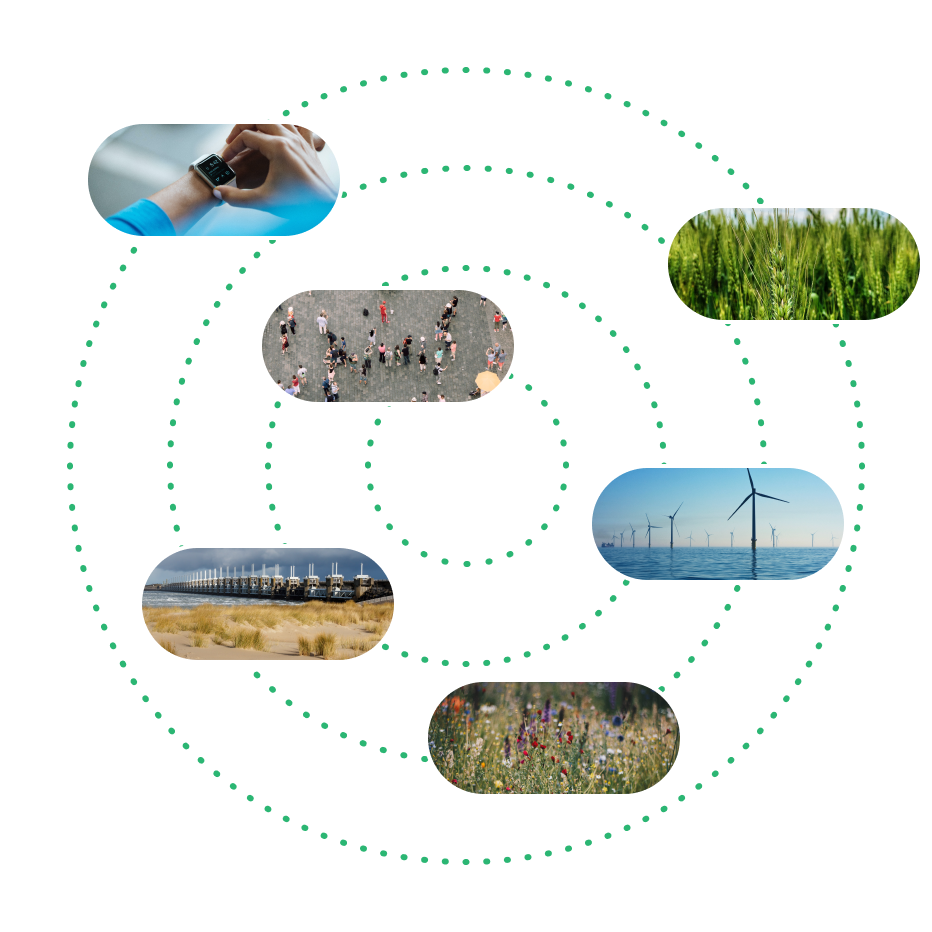MAIA COP29 Policy-Science Dialogue report “Building the Business Case for Subnational Climate Finance

On November 16, 2024, the MAIA project organized a significant side event at COP29 in Baku, Azerbaijan, titled “Building the Business Case for Climate Finance at the Subnational Level.” This gathering brought together over 40 stakeholders from various sectors to discuss the crucial role of subnational actors in advancing global climate action.
The importance of subnational climate finance
Subnational governments are responsible for the majority of climate mitigation and adaptation actions, yet they face substantial financial obstacles. Despite international pledges, less than 10% of climate funding reaches the local level, as reported by the UNEP Adaptation Gap Report 2023.
This event, therefore, offered an opportunity to highlight the critical role of subnational actors in addressing climate change, and the urgent need to foster collaboration and align climate investment with local priorities.
Key discussions and insights
The event focused on two main themes: the current state of subnational climate finance and innovative solutions to unlock funding.
Subnational climate finance: The current panorama
Experts in the first panel shared valuable perspectives on the financial landscape:
María José Sanz from the Basque Centre for Climate Change stressed the importance of science, governance and integration of local knowledge into financial planning to shape finance strategies. She also highlighted challenges to scalable project development such as fragmented data and limited access of subnational governments.
Phoebe Koundouri of Athens University of Economics and Business discussed the need for public-private partnerships, reformed global financial systems in the Global South and prioritising social equity when financing climate action.
Manveer Gill from CDP noted a significant increase in demand for climate finance among subnational actors, with cities disclosing 63% more projects needing finance in 2023 compared to 2021. He also commented on the need for better public-private communication to align projects and investment criteria.
Giorgio Maione, Minister of Environment and Climate of Lombardy Region, shared how integrating climate goals into public finance structures has improved green budgeting practices in the region. He also shared examples of fostering transparency and accountability by taking climate needs into account during financial planning. Sergio Arjona Jiménez from Andalusia presented innovative financing mechanisms, including blue carbon projects and regional reforestation initiatives, as well as sharing figures from regional adaptation projects.
Innovative solutions for subnational climate finance
The second panel explored practical financial solutions:
Kirsten Dunlop, CEO of EIT Climate-KIC, called for financial mechanisms tailored to regional actors and emphasized the need for holistic investment approaches, as well as shifting from reactive, short-term funding to more proactive investments in mitigation and adaptation.
Sonsoles Letang from the Catalan Government showcased Catalonia’s Climate Fund, which has mobilized over €380 million for climate projects, and outlined the workings of catalan carbon markets with a focus on forest conservation.
Stephen O’Driscoll of the European Investment Bank highlighted tools like the ADAPT platform and the Climate City Gap Fund, which have unlocked billions in investments, nothing the need for well-designed, bankable projects.
Niina Ratilainen, Member of the Turku City Council, stressed the need for increased capacity-building to help subnational actors navigate complex climate finance structures. The recent CoR report highlights the need for enhanced technical assistance programms from the EU to assist smaller municipalities with financial planning. Roger Cruz from the FAST-Infra Label Secretariat discussed the challenges of financing adaptation and the importance of standardizing sustainability metrics to attract more private investment.
Key recommendations
The event produced several recommendations to enhance subnational climate finance:
Assess subnational funding needs:
- Conduct comprehensive region-specific assessments to identify subnational priorities and financing gaps.
- Develop tailored financial mechanisms that address the unique environmental, social, and economic contexts of each region.
Advocate for increased subnational finance allocation:
- Work with national governments to allocate a greater share of climate finance to subnational actors.
- Emphasize the critical role of subnational governments in implementing impactful climate projects.
Strengthen capacity-building initiatives:
- Provide targeted guidance and training to subnational governments to improve project design and enhance access to climate finance resources.
- Focus on developing high-quality, well-structured projects that have a higher likelihood of securing funding.
Promote knowledge sharing and best practices:
- Facilitate the exchange of successful climate finance models and lessons learned among subnational governments.
- Showcase innovative solutions to inspire further investment and collaboration globally.
Develop and disseminate tailored financial mechanisms:
- Expand access to innovative financial instruments such as verified carbon markets, blue carbon credits, and resilience bonds.
- Ensure these financial tools are accessible and practical for subnational actors.
Adopt a strategic, long-term approach to adaptation finance:
- Transition from short-term, reactive funding to strategic, anticipatory investments that build long-term resilience.
- Increase the volume of adaptation finance while integrating mitigation and adaptation into cohesive frameworks.
Foster multi-stakeholder collaboration:
- Encourage partnerships between public and private entities to co-design locally driven solutions.
- Leverage private capital to supplement public funds and scale climate action.
Enhance data interoperability:
Improve data accessibility and transparency to strengthen the design and implementation of projects.
Invest in platforms and tools that enable seamless data sharing among stakeholders.
Bridging the gaps in subnational climate finance
This high-level event underscored the need to connect science, policy, and finance to empower subnational actors. By addressing systemic barriers and embracing innovative solutions, the international community can unlock the transformative potential of subnational climate action.
The discussions at COP29 provided a crucial platform for advancing these conversations, with the outcomes set to inform MAIA’s ongoing work, including the development of policy briefs to bridge the policy-science knowledge gap
Download the event report to learn more.
Disclaimer
Funded by the European Union. Views and opinions expressed are however those of the author(s) only and do not necessarily reflect those of the European Union or the granting authority. Neither the European Union nor the granting authority can be held responsible for them.
The information and documentation in this section are published with permission from their respective sources. While the MAIA Project strives to ensure the accuracy and completeness of the content, we make no guarantees or warranties of any kind, express or implied, about the validity, reliability, or accuracy of the information. The original sources are solely responsible for the content they provide. We disclaim any liability for any errors, omissions, or inaccuracies in the information and for any actions taken in reliance on the information contained on this website.

Comments
There is no content